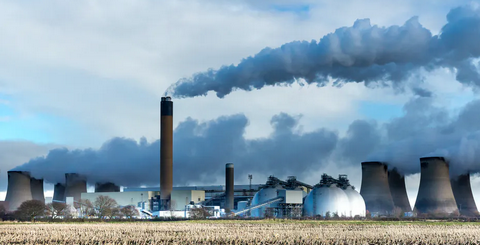What is Cultivated biomass refinement?
Cultivated biomass refinement is the response to earlier failed efforts decades ago in energy production to use biomass as an alternative to fossil fuels.
Historically, many larger electrical generating companies volunteered in the US and other countries to partner with government in developing test sites and demonstration of replacing coal, oil or gas by supplementing wood from trees as biomass to heat water for boiler operations to power steam turbines. This of course was destined to fail as none of the power companies desired to move away from the historically capable means of using fossil fuel to power these facilities. By destructive forestry clear cutting and processing mostly green, wet wood under the least organized production methods, the results insured failure. The boilers at these test sites failed miserably. Those failures quickly became the standard of response from power producers... "See, doesn't work, end of story".
But that isn't the end of the story... Utilities quickly sought the input of supposed self acclaimed ecologists to render an opinion that biomass was a "dirty" energy source and that clear cutting trees for energy production contributed to the already significant concerns of global deforestation. This in turn lead further to government restrictions on smaller wood burning applications for residential and pellet heating appliances, further forcing the issue into the cost negative incentive to force fossil fuel dependency even deeper.

What is the REAL truth?
The real truth is found in real science, from engineering the problems out of the process to a successful goal.
Fact: Biomass remains the ONLY true source of fully sustainable combustion power on earth capable of providing on-demand, rich power production, 24/7 in any weather conditions, day or night.
So where was the problem?
The problem was a lack of positive governance to manage the technical aspects of how private utilities were allowed free rein to develop biomass in the first place. Just as crude oil is a "raw" provision of energy, so is biomass, whether from trees, hemp, tumbleweeds or any other form. The biggest difference is that Biomass can actually be used in a fully emissions negative manner, fully sustainable. Biomass fuel requires REFINEMENT just the same as crude oil and natural gas. It also requires secondary processes to carefully manage the combustion methods, temperatures, moisture content and methods to control which volatile gases are produced and emitted from the combustion unit, same as fossil fuel does.
In other words by NOT providing sufficient processing supports as is done for fossil fuel, the combustion output of an unregulated unrefined wood fuel, produces huge amounts of waste heat, CO2, sulfur, chloride, nitrogen oxides and other undesirables like carbon soot, which hangs low in the atmosphere and causes "smog", irritating lungs, eyes, nose, etc.
Carbon Analytic's 10 year development of clean biomass combustion was designed to provide those essential refinement processes and specialized, patent pending biomass fuel designs with appropriate controls to mitigate greenhouse gassing from carbon dioxide and water vapor, conversion of waste heat to energy. These systems process raw fuel and exhaust gases in a manner to continually reduce climate impact. By amendment with other waste streams such as landfill plastic and ocean pollutants, the same clean refinement then participates in reducing global pollution on a still wider vector of solutions.
Having designed, tested and built the various working systems, the final concern is to insure against deforestation which is where CA NPO begins. By managing the available labor forces locally to create self-ownership models of "Employee Owned" non-profit groups, the design insures sufficient co-op initiative to produce more trees and raw biomass than we consume. This in turn partners with other non-profits to take advantage of these prepared waste streams among still other industrial, commercial and residential combustion designs CA can offer, making use of both refined fuels and controlled process at large, not only providing heat and electrical energy, but restoring losses due to deforestation and recovery of damaged air, land and water.
From biomass comes electricity to charge EV cars, carbon neutral natural gas to power heating and internal combustion, hydrogen to power hydrogen power cells for vehicles and fairly any form of energy production in a sustainable, recovery model. The methods CA has developed in the fullest global transition is capable of replacing up to 70% of the current fossil fuel consumption, leaving only 30% required to make use of less full time capable systems like solar and wind.
These solutions have always been available. The problem was a lack of technology to make use of clean biomass combustion practical. The last and most important part of the design is to have done so in a way that can supplement the existing wood fuel industry and fossil fuel industry in a "transitional" manner. This provides these huge suppliers with stability to transition to biomass energy production without risking their profitable security and the hundreds of thousands of jobs bound to fossil fuel energy. Ultimately CA energy creates still thousands of more clean, well paying non-profit jobs helping those otherwise displaced in the losses of farming and agriculture and still more energy production jobs.
THAT is what biomass refinement is and what it means to finding the silver lining inside the cloud that mismanaged energy and pollution have brought about in nearly a century burning fossil fuel reserves from below ground where they need to stay.
Ask where you can help. Register, login and participate. Become a part of the solution because today we're all part of a problem we never meant to be. There is a path forward, if we choose it.
